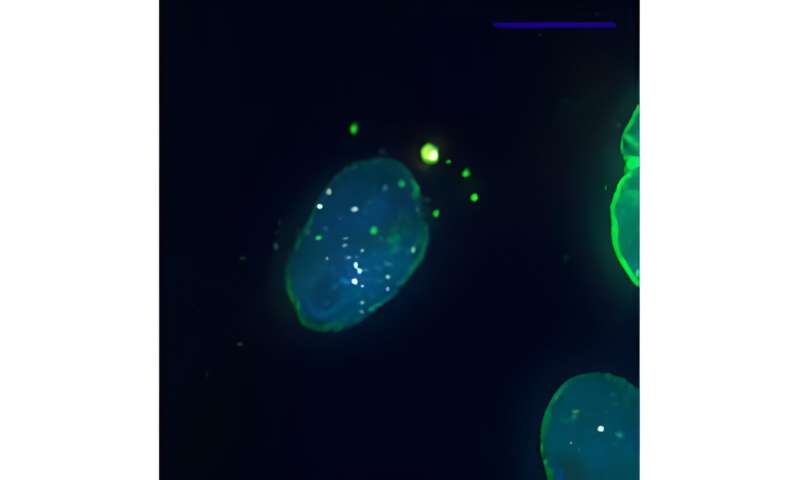Best of Last Week—new mammal organelle, AI that designs robots, Stonehenge 'Altar Stone' has different origin

It was a good week for biology research, as a team of cell biologists at ETH Zurich identified a new organelle in mammalian cells. Called the exclusome, it is made of DNA rings called plasmids. A team led by a group at USC unlocked the secrets of a sixth basic flavor. They found that the tongue responds to ammonium chloride via the same protein receptors that signal sour taste. And a team of biologists at the University of Exeter found that bumble bees drop to shake off Asian hornets. By dropping to the ground, the bees take the attackers with them, forcing them to lose their grip.
In technology news, a team at the University of Jyväskylä developed a new technique based on 18th-century mathematics that shows simpler AI models do not need deep learning to perform complex tasks. And a team of engineers at Northwestern University created an AI system that is able to design new robots from scratch in just seconds. They found it was able to design a robot in less than a minute that was able to walk. Also, another team of robotics engineers, this one at Korea Advanced Institute of Science and Technology, designed, built and successfully tested a 130-gram soft robot gripper that was able to lift a 100-kg object. And engineers at the University of California San Diego developed a new energy-storing material that can also be used to build electronic gadgets—they showed it could be used as both a casing and a battery for a smartphone.
In other news, a team of medical researchers with members from Cincinnati Children's Hospital Medical Center, Stanford University, Emory University and the University of Tübingen, found that the human infant immune system has a unique and effective way to respond to a SARS-CoV-2 infection—it mounts an antibody response for up to 300 days. Also, a study conducted by a team at Aberystwyth University, U.K., led to a surprise—the famous "Altar Stone" at Stonehenge did not come from the same source as the other stones that make up the megalithic monument. And finally, a team at the Norwegian Institute of Public Health, found that COVID-19 vaccines can cause vaginal bleeding in women of reproductive age.
© 2023 Science X Network